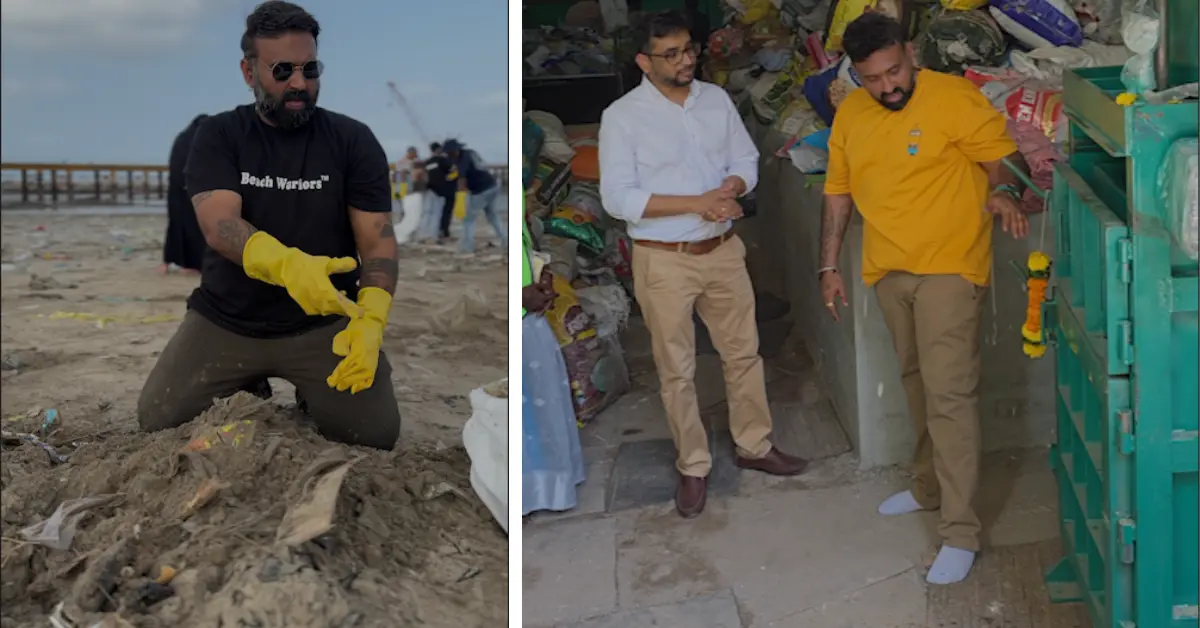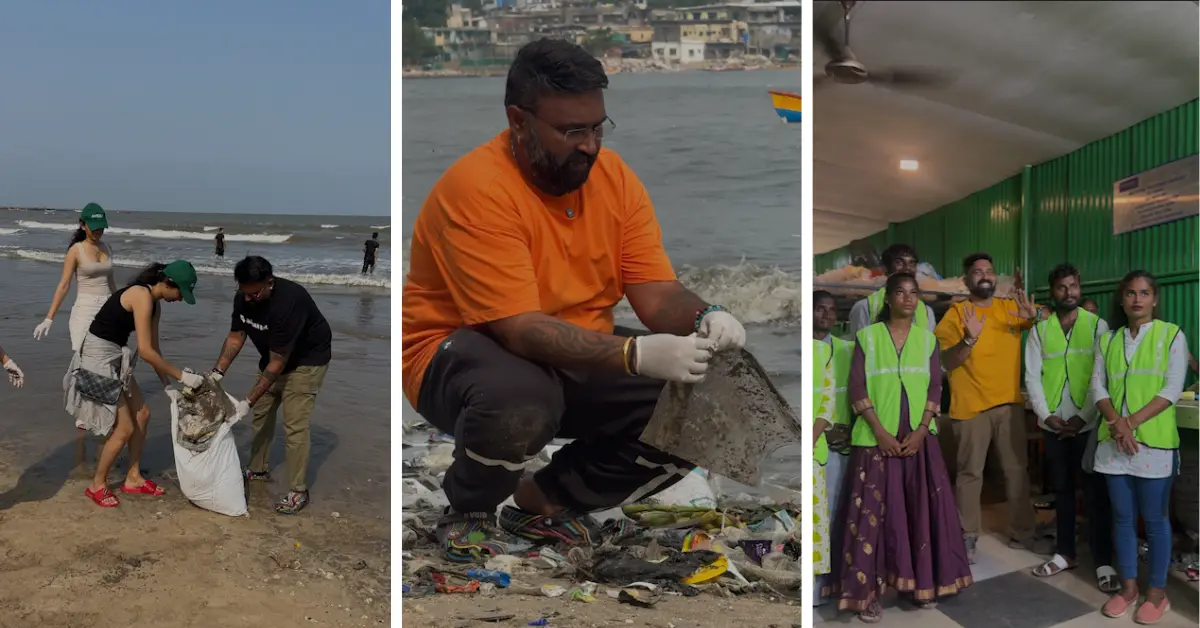On a quiet morning in Mumbai, where the waves gently lap against the sand, something extraordinary is happening — not in a lab or a tech park, but right here on the beach, once forgotten under layers of plastic waste.
For years, Dadar Beach was known more for its debris than its sunsets. But today, if you visit, you’ll see volunteers with gloves and buckets, schoolchildren helping out with wide-eyed curiosity, and a man named Chinuu Kwatra, walking barefoot along the shore with purpose.
Chinuu isn’t a government official or a corporate executive. He’s an everyday Mumbaikar with an extraordinary mission: to clean Mumbai’s beaches and give ocean plastic a second life. And he’s doing it in a way that’s deeply practical — and deeply human.
Most cleanup efforts stop at collecting waste. But Chinuu wanted to go further. In a first for India, he built a Beach Waste Recovery Facility — a humble but powerful space where recovered plastic is sorted, cleaned, and processed.
But instead of just recycling the plastic into generic pellets, Chinuu’s team had a more pointed question: What if this waste could build something useful?

The plastic collected from the ocean — bottle caps, food wrappers, broken toys, and detergent containers — is now being transformed into sturdy, low-cost benches for village schools.
Many schools in rural Maharashtra and beyond lack basic infrastructure, including enough seating for students. Chinuu saw an opportunity to fill this gap. Working with local recyclers and fabricators, the plastic waste is compressed and moulded into durable school furniture. It’s waterproof, low-maintenance, and gives children a dignified place to sit and learn.
“Kids were sitting on cold floors, while tonnes of plastic sat useless on our beaches,” Chinuu says. “Why not connect the two problems and create a solution?”

But this initiative isn’t just about benches. It’s about shifting how we see waste. Each bench is a humble reminder that what we throw away can still have value — if we care enough to look closer.
And the impact ripples out. Volunteers say that once children in nearby villages hear that the benches were made from ocean plastic, they become more curious about environmental conservation. Beach clean-ups, once seen as a chore, are now something of a movement.
Edited by Vidya Gowri
No comments:
Post a Comment